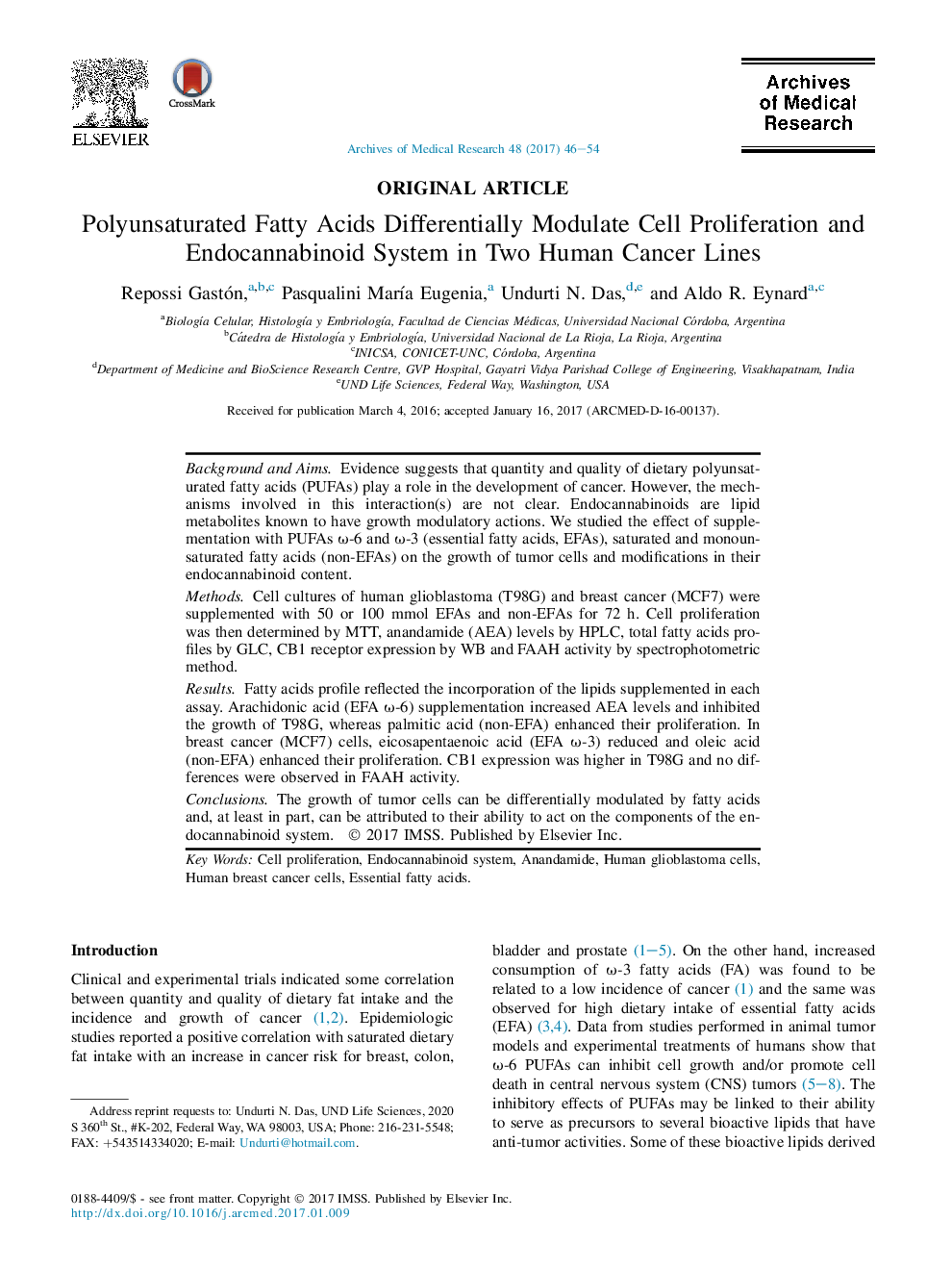| کد مقاله | کد نشریه | سال انتشار | مقاله انگلیسی | نسخه تمام متن |
|---|---|---|---|---|
| 5677199 | 1595450 | 2017 | 9 صفحه PDF | دانلود رایگان |
Background and AimsEvidence suggests that quantity and quality of dietary polyunsaturated fatty acids (PUFAs) play a role in the development of cancer. However, the mechanisms involved in this interaction(s) are not clear. Endocannabinoids are lipid metabolites known to have growth modulatory actions. We studied the effect of supplementation with PUFAs Ï-6 and Ï-3 (essential fatty acids, EFAs), saturated and monounsaturated fatty acids (non-EFAs) on the growth of tumor cells and modifications in their endocannabinoid content.MethodsCell cultures of human glioblastoma (T98G) and breast cancer (MCF7) were supplemented with 50 or 100Â mmol EFAs and non-EFAs for 72Â h. Cell proliferation was then determined by MTT, anandamide (AEA) levels by HPLC, total fatty acids profiles by GLC, CB1 receptor expression by WB and FAAH activity by spectrophotometric method.ResultsFatty acids profile reflected the incorporation of the lipids supplemented in each assay. Arachidonic acid (EFA Ï-6) supplementation increased AEA levels and inhibited the growth of T98G, whereas palmitic acid (non-EFA) enhanced their proliferation. In breast cancer (MCF7) cells, eicosapentaenoic acid (EFA Ï-3) reduced and oleic acid (non-EFA) enhanced their proliferation. CB1 expression was higher in T98G and no differences were observed in FAAH activity.ConclusionsThe growth of tumor cells can be differentially modulated by fatty acids and, at least in part, can be attributed to their ability to act on the components of the endocannabinoid system.
Journal: Archives of Medical Research - Volume 48, Issue 1, January 2017, Pages 46-54
